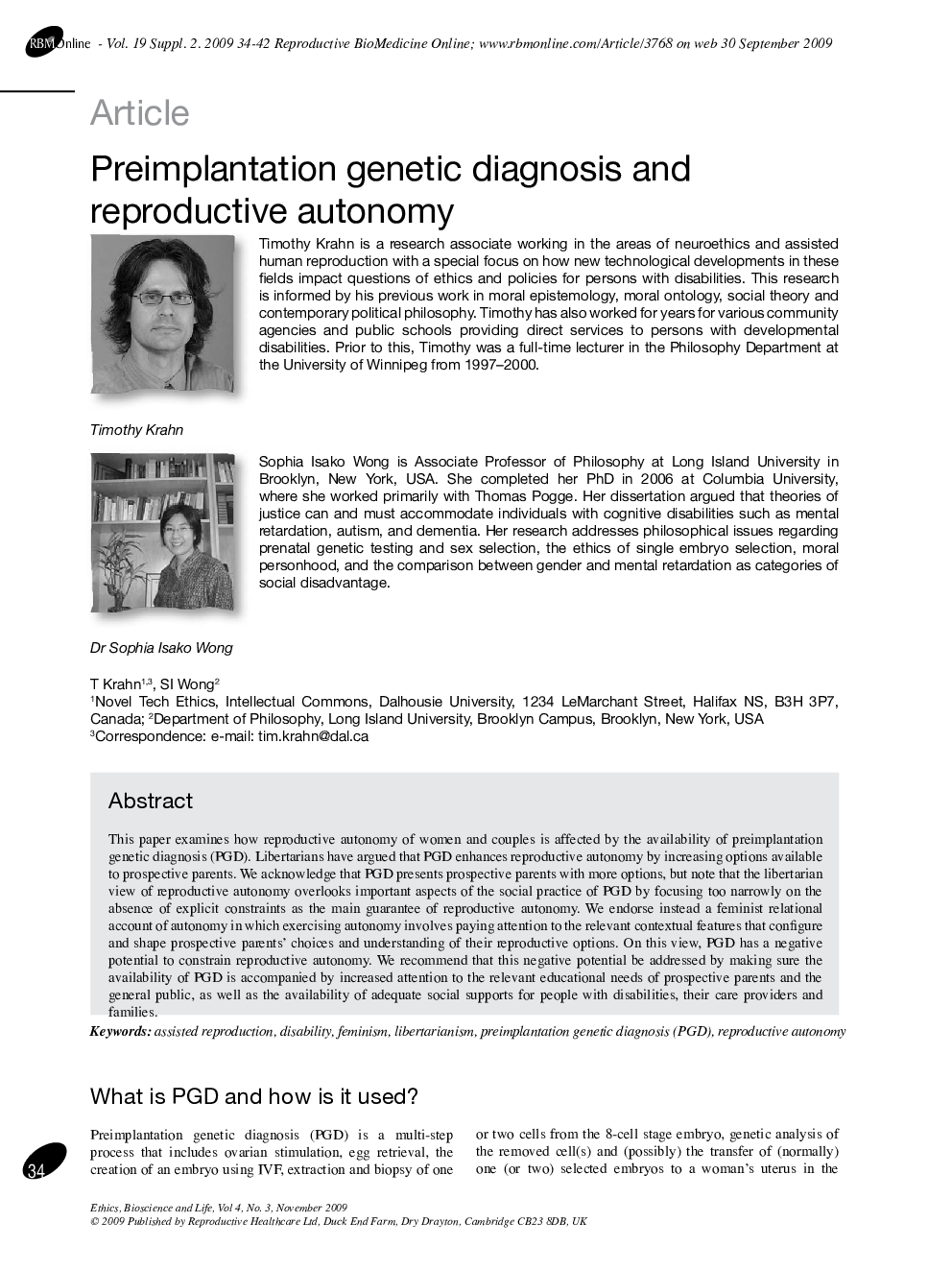| Article ID | Journal | Published Year | Pages | File Type |
|---|---|---|---|---|
| 3972367 | Reproductive BioMedicine Online | 2009 | 9 Pages |
This paper examines how reproductive autonomy of women and couples is affected by the availability of preimplantation genetic diagnosis (PGD). Libertarians have argued that PGD enhances reproductive autonomy by increasing options available to prospective parents. We acknowledge that PGD presents prospective parents with more options, but note that the libertarian view of reproductive autonomy overlooks important aspects of the social practice of PGD by focusing too narrowly on the absence of explicit constraints as the main guarantee of reproductive autonomy. We endorse instead a feminist relational account of autonomy in which exercising autonomy involves paying attention to the relevant contextual features that configure and shape prospective parents' choices and understanding of their reproductive options. On this view, PGD has a negative potential to constrain reproductive autonomy. We recommend that this negative potential be addressed by making sure the availability of PGD is accompanied by increased attention to the relevant educational needs of prospective parents and the general public, as well as the availability of adequate social supports for people with disabilities, their care providers and families.
